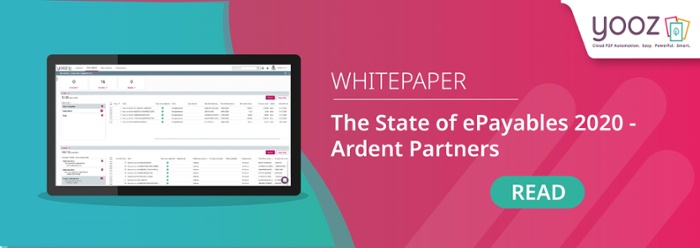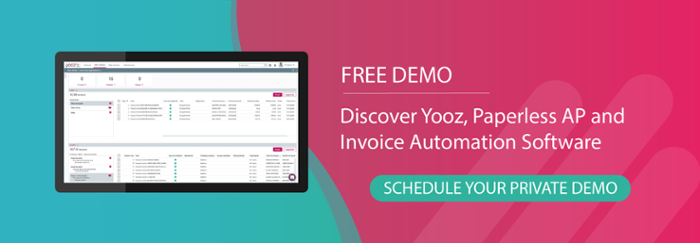In the dynamic realm of healthcare, the integration of technological advancements and improved processes are no longer optional but a necessity. Effectively managing hospital vendors is of paramount significance for healthcare insittutions, and combining these elements has the potential to reshape operations,reduce expenses, and improve overall efficiency and profitability.
Success relies on effective collaboration with a a wide array of vendors, from key medical suppliers to indispensable service providers. Together, they fuel the gears of healthcare facilities.
But the question remains: How can seamless technology coordination be achieved while ensuring compliance with government regulations and industry standards?
The answer lies is automation.
Keep reading to explore hospital vendor management, its significance, and how automated financial systems are transforming healthcare operations.

The Power of Automated Healthcare Vendor Management Simplified
In healthcare vendor management, understanding the basics is crucial. So what exactly is a hospital vendor management system?
These systems are smart tools that designed to simplify vendor relationships, comprehensive platforms streamlining and optimizing the entire vendor management lifecycle. They go beyond procurement and payment, offering a wide-ranging approach to managing vendor relationships, labor (which can be as much as 60% of an entire budget), and regulatory compliance. Understanding these systems is vital for better management processes.
Vendor Management
Efficient healthcare vendor management is vital for smooth operations. It begins with identifying reliable vendors, streamlined by management systems. These enable facilities to conduct thorough reasearch and evaluation ensuring that the vendor selection aligns with predefined criteria.
Once vendors are chosen, these systems centralize crucial vendor information, ensuring quick and easy access to critical details like insurance, licenses, and pricing. This not only expedites decision-making but also improves transparency and accountability.
Furthermore, these systems provide a centralized platform for vendors to track their invoices and payment statuses, reducing the need for follow-ups and inquiries. Given that late payments impact nearly half of B2B businesses in the USMCA (US, Mexico and Canada) region, paying on time can make a huge difference in the terms and price points you’re offered.

Contract Management
Once vendors are chosen, the process then advances to contract negotiation, a crucial stage in vendor management.
Healthcare vendor management systems enable facilities to efficiently draft, review, and execute contracts. They incorporate features such as electronic signatures, version control, and contract templates to speed up the process.
Incorporating automated financial reporting systems within the vendor management process helps manage the financial aspects of contracts, mitigating the risk of errors and fostering compliance.
Procurement and Ordering
Efficient procurement is vital to ensuring a steady supply of goods and services. Suitable hospital vendor management systems simplify this by automating purchase requisitions, purchase orders, and order tracking. This reduces the risk of order discrepancies and improves order fulfillment.
Automated financial systems play a pivotal role in this area, providing real-time visibility into procurement-related financial data, ensuring adherence to budget guidelines and regulations.
Invoice and Payment Processing
Processing vendor invoices and managing payments is a time-consuming task and error-prone when done manually. Healthcare vendor management systems with automated financial systems streamline the invoice process, minimizing manual intervention, reducing errors and speeding up the process.
Performance Monitoring and Vendor Evaluation
Continuous performance monitoring ensures vendors consistently meet quality, delivery, and service standards. Hospital vendor management systems help track vendor performance, analyze Key Performance Indicators (KPIs), and generate reports to evaluate vendor effectiveness.
Automated financial systems provide financial analytics, enabling healthcare facilities to assess vendor profitability and identify cost-saving opportunities. By using these insights correctly, organizations can make data-driven decisions to improve vendor partnerships and optimize their financial outcomes.
Enhanced Compliance and Risk Management
In hospital vendor management, compliance with industry regulations, vendor contracts, and quality standars is paramount. Automated financial systems play a crucial role by equipping facilities with robust compliance management features. These features help to monitor vendor performance, ensuring adherence to contractual obligations, data security, and regulatory requirements.
By doing so, these systems assist healthcare faciliites in mitigating financial risks, maintaining data security, and avoiding potential legal liabilities. They also boost reinforce internal controls, reducing the risk of fraudulent activity, financial losses, and damage to reputations associated with non-compliance.
Advantages of Automated Financial Systems
As noted above, automated financial systems are becoming a vital part of healthcare organizations, providing a competitive edge by being the difference between a seamless workflow and a slow meandering one. They boost time-saving and efficiency, improve accuracy, provide real-time data insights, drive costs savings, foster better vendor relationships, and enhance compliance.
Keep reading to find out more about the main advantages of implementing automated financial systems in hospital vendor management.

Time Saving and Efficiency
One of the biggest reasons to use automated financial systems in a healthcare setting is the boost in time saving and efficiency you’ll receive as a result. These systems automate labor-intensive tasks like data entry, invoice processing, and payment management, reducing the need for manual intervention.
As a result, hospital staff can focus on more useful activities that ensure increased productivity and smoother working practices.
Improved Accuracy
Manual data entry isn’t perfect, and it’s easy for mistakes to be made, which can lead to financial discrepancies and strained vendor relationships. Automated financial systems in hospital vendor management make sure that advanced technology, which could include optical character recognition (OCR) and data validation algorithms, is used to create accurate results.
When you reduce manual errors, healthcare facilities can achieve more financial accuracy and transparency in their vendor management processes.
Real-Time Data Insights
Automated financial systems provide healthcare organizations such as hospitals with real-time access to the most important financial data, which then allows finance and procurement teams to track and manage vendor expenses, monitor cash flow, and analyze spending patterns quickly and easily.
Being able to quickly and easily find reports and data analytics means that healthcare administrators can make better-informed decisions about vendor selection, performance evaluation, and cost-saving ideas. Having access to real-time data insights is especially valuable when there are supply chain disruptions or changes in demand that aren’t always possible to predict.
Cost Savings
Automated financial systems enable healthcare facilities to achieve significant cost savings in vendor management by streamlining processes and reducing manual labor. Plus, automated financial systems help healthcare organizations optimize financial management by adhering to budget constraints and identifying areas for cost containment.
When there is better financial control, healthcare facilities can allocate resources more effectively and invest in strategic initiatives to enhance patient care.

Time to Elevate Vendor Management with Yooz
Automated financial systems are changing the way the healthcare industry works for the better. Contact Yooz today to transform your vendor management and create a future based on growth and efficiency. Visit our website and chat with our team to find out more.
FAQs
How can Yooz help hospitals manage their vendor relationships more efficiently?
What features does Yooz provide to ensure compliance and security in hospital vendor management?
Can Yooz integrate with existing hospital management systems to improve vendor management?
How does Yooz handle the challenges of managing a diverse range of vendors in the healthcare industry?









